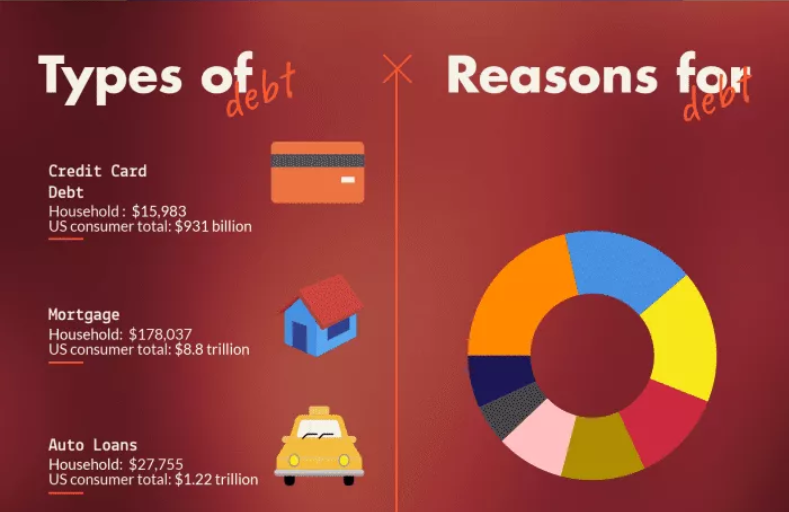Everyone makes mistakes. Unfortunately, some mistakes are bigger than others, and big financial mistakes can lead to severe consequences. Whether it is due to bad investments, overwhelming credit card debt, unpaid medical bills or any other combination of financial missteps, there may come a point when bankruptcy seems like the only option.
While bankruptcy can be the best– or only– choice in some instances, it should only be considered when all other options are exhausted. However, many people go down this path prematurely when other methods could have saved them from the serious financial blow that is bankruptcy.
Overwhelming Debt
Even if you feel as though your situation is hopeless, and there could be no way to climb your way out of the hole that is excessive debt, there will always be options available. Especially in the case of credit cards and other unsecured debt, options such as debt consolidation could help you regain your footing, pay down your debts and once again work your way towards financial freedom.
If you have already tried the following techniques, spoken with your financial advisor and weighed the options seriously, then bankruptcy can be preferable to losing your home or your mind due to insurmountable debt. The bankruptcy laws are there for a reason, and you should never feel embarrassed about taking a step towards regaining financial responsibility.
But before you make that dreaded call to the attorney, make sure you try these options that could save you from the long-term financial impacts of bankruptcy.
Renegotiate
The simplest way to get your credit card debt under control is simply by calling the companies and trying to negotiate with them. There is nothing set in stone about your interest rates, payments or even you balance, and most creditors would rather renegotiate and work with you than get no payment at all. While this step alone may not always have a big enough impact to save you from overwhelming debt, it can help, and there is no reason to not try it.
Debt Consolidation
If your biggest financial problems stem from credit cards, medical bills, personal loans and other unsecured debts, a debt consolidation loan could be a life-saver. While there are many options for debt consolidation, the general concept involves taking out one large loan– ideally with a low interest rate– and paying off your current debts with the money from it. When done correctly, debt consolidation can help you get out of debt, and it can be a perfect solution for your troubles in case you were wondering how to repair your credit fast. However, this technique is not a magic wand, and it still involves taking out another loan. For debt consolidation to work, you must have a solid plan in place, stick to that plan and change the spending patterns that got you into this position.
Image source Google ImagesBorrow From Yourself
If you have a 401k, IRA, investments or other retirement funds, you may need to borrow from these to get out of debt. Although it can present serious risks and fees, this can be a better option than taking out an additional loan to pay current debts or filing for bankruptcy. Each type of investment account will have its own advantages and drawbacks in terms of borrowing.
For instance, you can withdraw from your IRA for no penalty, but that money must be paid back within 60 days or you will incur serious penalties and taxes on the funds. Similarly, a 401k loan essentially amounts to borrowing from yourself, but you will be responsible for taxes and fees, and you could be robbing your retirement fund if not done responsibly. Homeowners can also consider a home equity loan, but this poses even more serious risks.
Last Resort
If you have already exhausted every other possibility, bankruptcy can save you from disaster. Although it has long-term repercussions and should only be used as a last resort, it can be a necessary tool to get your financial life back on track.

IntelligentHQ Your New Business Network.
IntelligentHQ is a Business network and an expert source for finance, capital markets and intelligence for thousands of global business professionals, startups, and companies.
We exist at the point of intersection between technology, social media, finance and innovation.
IntelligentHQ leverages innovation and scale of social digital technology, analytics, news and distribution to create an unparalleled, full digital medium and social business network spectrum.
IntelligentHQ is working hard, to become a trusted, and indispensable source of business news and analytics, within financial services and its associated supply chains and ecosystems.





























